Business
Sterling, two others look up to foreign banks for assistance
Published
10 years agoon
By
Olu Emmanuel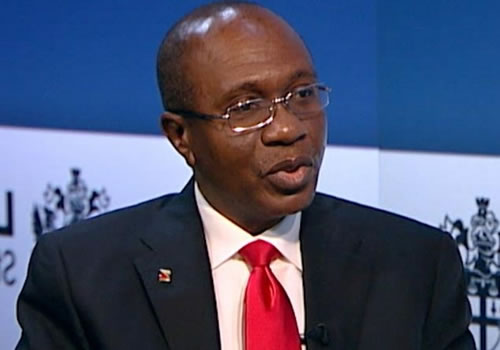
By ODUNEWU SEGUN
FRESH facts are beginning to emerge that six commercial banks are in distressed, and in dire need of recapitalization. In other to escape liquidation, these banks, National Daily gathered, are already discussing merger’s opportunities if they are to stay in business by 2016.
CBN Governor, Mr. Godwin Emefiele, had dismissed reports that eight banks where in need for fresh liquidity claiming “there is no Nigerian bank that has capital adequacy problem today and all the news around are false.
“We stress-test banks’ balance sheet and profit loss accounts on a regular basis using different scenarios. That is what we do as a responsible apex bank that monitors the strategic health of banks. We carry this exercise out as a practice and I hope this puts this matter to rest.”
But recent utterances of some banks CEO, National Daily gathered point otherwise. Implementation of the Treasury Single Account (TSA) and continued plunge of oil prices in the global market has put most banks under strain as most debtors can no longer service their debts while government funds are now domiciled with the apex bank.
According to the CEO of the bank, Yemi Adeola, the slowdown in the economy couple with currency weakness provided opportunities for a market consolidation to build scale and cut costs, adding that one or two foreign banks were having discussions about possible acquisitions in Nigeria.
“You could see … one or two international banks taking over one or two Nigerian banks … in 2016 from the look of things,” he said, declining to name the lenders.
“As for us at Sterling, we are always open to anything that will give us scale”
Although, Adeola refused to mention names of banks involved, he said: “To say that everything will be rosy in 2016 will be deceiving ourselves. I think if the opportunities arise for banks to pursue further consolidation, we could see two or three. I also know that one or two international banks are interested in pursuing acquisitions in Nigeria and they are indeed having discussions already.”
“So, you could see a combination of one or two international banks taking over one or two Nigerian banks or merging with them. And nothing also stops two or three Nigerian banks having merger discussions in 2016.”
Adeola said Sterling Bank is ready for either a merger or an acquisition, provided it will add value to stakeholders. “Whether it is a merger or acquisition, we are open, but the synergy must be there. We must see the benefits clearly. Any merger must be one that ensures stakeholders will benefit more; otherwise it will not be worthwhile,” he said.
According to him, the foreign exchange challenge remained a tough one for banks and the economy. “You can only spend what you have and if our reserves are at $29.4 billion as at December 15, there will be barely enough fund for four to five months of import. The options are usually two: to adopt capital control and focus on key sectors.”
Already, United Bank for Africa, Diamond Bank and Stanbic IBTC Bank have reduced lending this year, citing regulatory uncertainty and weak economic growth.
Shares in the bank, which have fallen 25.9 percent this year, are trading at less than 1 times its book value, analysts say. The stock shed 4.79 percent on Friday to 1.79 naira, giving it a market value of 51.5 billion naira ($259 million).
Adeola expects investment flows to reverse after the U.S. Federal Reserve raised interest rates this week for the first time in almost a decade, a move that could also hurt borrowers exposed to the dollar.
In recent times, the naira, which is pegged to the dollar, has been hitting new lows among retail bureaux de change operators since last week with the central bank trying to curb demand to conserve its reserves, hurting commercial banks’ trade business.
Crude oil prices, which experts said could come further down, have fallen to as low as $37.11 per barrel from over $110 per barrel a year ago. This has adversely affected banks’ oil assets. Besides, the level of non-performing loans in the sector has risen.
According to experts, Nigeria cannot sustain capital controls for so long. He said the government does not want the forex to be used for speculative purposes. “But it is a double edged sword. If you adopt capital controls, investors are reluctant to come in, because if they bring their money in at N200 to dollar, they will not be able to know what rate when they are going. So, you shut your door to new money coming in.”
National Daily also gathered that Banks, such as Wema Bank, Diamond Bank, Fidelity Bank, Skye Bank and some others are facing serious level of distress. It was gathered that some of these banks have neglected to maintain healthy capital liquidity levels, especially in the area of bad loans that have left them on the brink of collapse. According to sources, the implementation of the TSA, which saw the removal of billions of naira from the treasuries of these banks, exposed their capital base.
It was gathered that the banks gave loans without collateral to highly placed individuals who had since refused to pay because of their political or business connections.
According to sources, CBN did not wish to create a panic in the banking sector, adding that the capitalization order to certain banks was to avoid the recurrence of the 2010 banking crisis that saw Nigeria giving banks a huge bailout.
The CBN source said the latest approach announced by the CBN pushing down interest rates were all pro-active and pre-emptive strikes to prevent a total meltdown in the Nigerian banking sector. He concluded that regardless, the banking sector would need an “AMCON 2” referring to the Asset Management Corporation of Nigeria, a body set to buy bad debts from Nigerian banks.
You may like
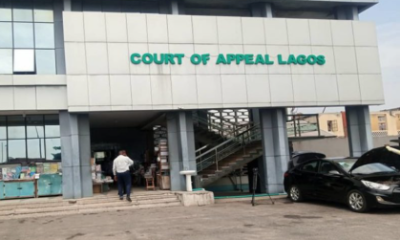

Appeal Court nullifies Emefiele’s asset forfeiture, Orders retrial


Naira gains 1.28% in official market in May amid oil price risks, currency volatility
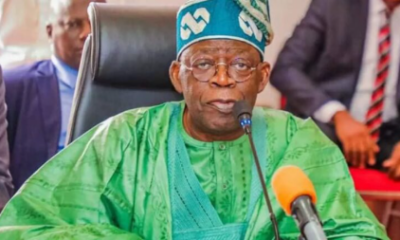

Tinubu: Diaspora APC chieftain tasks local banks on reforms
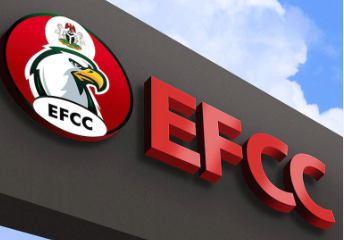

Alleged corruption: EFCC witness details wow Emefiele allegedly received $17.1 million in cash
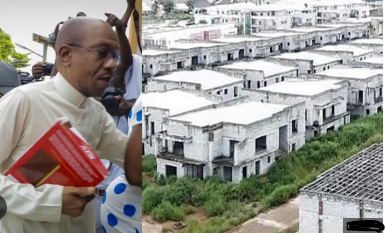

FG to auction 753 housing units forfeited by Ex-CBN Gov. Emefiele in Abuja
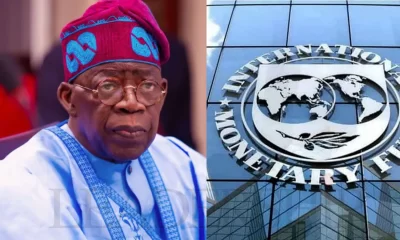

Nigeria’s debt rises to N74.38trn, $44.9bn despite IMF loan repayment
Trending

 Health6 days ago
Health6 days agoDeclassified CIA memo explored concealing mind-control drugs in vaccines

 Entertainment1 week ago
Entertainment1 week agoSimi addresses resurfaced 2012 tweets amid online backlash

 Crime6 days ago
Crime6 days agoSenior police officers faces retirement after Disu’s appointment as acting IGP

 Education1 week ago
Education1 week agoPeter Obi urges JAMB to address registration challenges ahead of exams

 Health1 week ago
Health1 week agoNAFDAC issues alert on suspected revalidated SMA Gold infant formula

 Comments and Issues7 days ago
Comments and Issues7 days ago20 Critical Fixes to Save Nigeria’s Democracy from Electoral Fraud

 Football1 week ago
Football1 week agoMartínez ruled out of Everton clash with calf injury

 Latest6 days ago
Latest6 days agoICPC yet to respond to El-Rufai’s bail request as arraignment date looms

